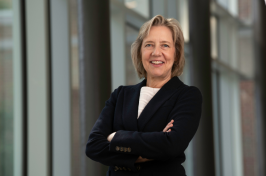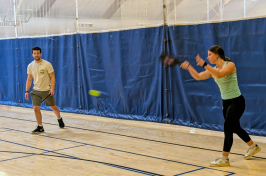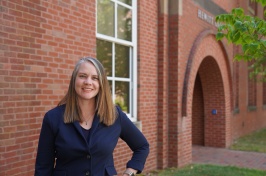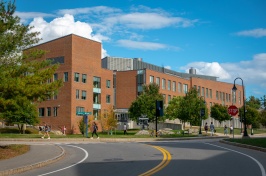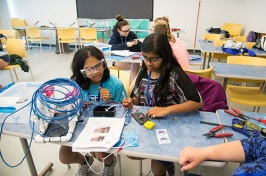NH Research Finds Affordability and Lack of Openings Obstacles to Child Care

DURHAM, N.H.—Three-quarters of survey respondents with children under age five had searched for childcare in the past 12 months and half of them reported the search was difficult, according to a statewide family needs assessment survey. The survey was conducted and analyzed by the Carsey School of Public Policy at the University of New Hampshire as part of the statewide Preschool Development Grant.
The goal of the grant is to build New Hampshire’s early childhood care and education system, better address the needs of vulnerable young children and their families and create a solid foundation to improve outcomes for N.H.'s children, families, schools and communities. It is a collaboration between UNH, the state departments of education and health and human services, the governor’s early childhood council and early childhood advocates and practitioners.
“This family needs assessment identified childcare—both availability and affordability—as top concerns,” said Jess Carson, research assistant professor of public policy. “Seventy-four percent of responding parents with young children used at least some nonparental care. However, 80% of those respondents rated their arrangement as less than ideal and identified affordability as especially important for moving from ‘less than ideal’ to ‘ideal.’ More broadly, though, families need diverse local childcare options that allow them to choose from different kinds of settings and that match their child’s needs and fit their family’s circumstances, including their income, work schedule and preferred language. Having access to the right kind of childcare—which may look different for different families—can set critical foundations for children’s early learning and allow parents to fully engage in work.”
In addition to childcare, the survey gathered information about other family needs.
“We’re working to create a more comprehensive system for little kids and their families,” said Kimberly Nesbitt, primary investigator of the early childhood initiative and associate professor of human development and family studies. “The information gathered through this survey will help to inform our planning, identify the programs we should invest in and create a network that better lets families know all of the programs that are available.”
According to Carson, half of the respondents use at least one program meant to support their child’s development and education or to help their family meet household food needs. Overall, respondents were generally aware of food assistance programs, but knowledge about child development programs was less widespread—especially among those with younger children.
“A lot of programs exist to help families get the resources they need, and it’s really important that state and nonprofit partners continue to recognize that people don’t know a lot about what exists,” said Nesbitt. “We need to continue to get the word out via word of mouth and trusted nonprofits.”
The Carsey School of Public Policy at the University of New Hampshire is nationally recognized for its research, policy education, and civic engagement. The ideas and ambitions of the United Nations Sustainable Development Goals are a touchstone for our faculty and students as we contribute to a more informed, healthy, equitable, peaceful and sustainable university, community, state, nation and planet. The school takes on pressing public issues with unbiased, accessible, and rigorous research; builds the policy and political problem-solving skills of its students; and brings people together for thoughtful dialogue and practical problem-solving. The school is a hub for work that spans its own faculty and staff, and faculty from across UNH and other institutions. The faculty boasts a national reputation and its work appears in leading journals. The school publishes policy-relevant briefs, offers three master's degree programs, and engages with experts, leaders, the media, and the public in the United States, New Hampshire, and around the world.
The University of New Hampshire inspires innovation and transforms lives in our state, nation and world. More than 16,000 students from all 50 states and 71 countries engage with an award-winning faculty in top-ranked programs in business, engineering, law, health and human services, liberal arts and the sciences across more than 200 programs of study. A Carnegie Classification R1 institution, UNH partners with NASA, NOAA, NSF and NIH, and received $260 million in competitive external funding in FY21 to further explore and define the frontiers of land, sea and space.
Latest News
-
October 2, 2025
-
September 24, 2025
-
September 15, 2025
-
August 21, 2025
-
August 12, 2025










